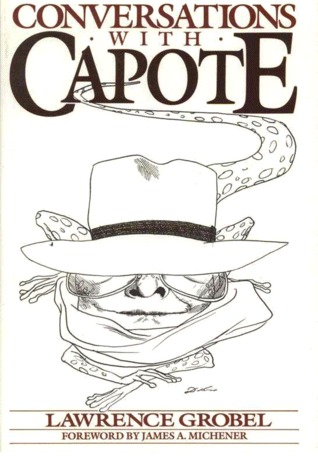More on this book
Kindle Notes & Highlights
“No, my favorite book is The Muses Are Heard.”
Did you consider writing a letter to the editor in protest? No, I never write letters to the editor about anything. No matter what’s written or printed about me, I never write or complain. I do truly believe in: Never explain and never complain.
You did get something from an autograph seeker in a Key West bar—an amusing story? Could you relate it? It was in a bar in Key West and it was very, very crowded. I was sitting there with Tennessee. And this woman came over to this table where we were sitting and she had on a little pull-up shirt and she pulled up her shirt and handed me an eyebrow pencil. And she said, “I want you to autograph my navel.” I said, “What?” And she said, “Just write it like you would the numerals around a clock.” I said, “Oh no, forget that.” And Tennessee said, “Oh, now, go on, go ahead.” So I wrote my name:
...more
3 Love, Sex, and Fear
You think I’m different, well, I’ll show you how different I really am.”
You’ve been with Jack Dunphy for twenty-five years now, haven’t you? Thirty-five.
Is shooting something you never forget how to do? It’s something you always know, like riding a bike. I began when I was about eight years old and then I did it in school a great deal.
In your preface to Music for Chameleons, you wrote that “When God hands you a gift, he also hands you a whip; and the whip is intended solely for self-flagellation.” What did you mean by that? By that I meant that God does give one a gift, whatever it may be, composing or writing, but for whatever pleasure it may bring, it also is a very painful thing to live with. It’s a very excruciating life, facing that blank piece of paper every day and having to reach up somewhere into the clouds and bring something down out of them.
When you finish writing for the day, do you leave off in the middle of a paragraph or with your first sentence of the next paragraph to get you back into the next day’s work? Yes, I always have done that trick. It’s a good trick.
Ernest Hemingway.
You’ve called him dishonest and a “closet everything.” That he was a closet queen and everything else.
For instance, that Jack Abbott, in his book, described this thing of how it felt pushing the knife into somebody, knowing just where to put it under the ribs, seeing the expression on the person’s face… Why do murderers almost always laugh when discussing their crimes? I think they feel a sudden rush of embarrassment. You know, what’s called an embarrassed laugh? That’s how I would describe it.
Is there anything they all have in common? I’m not going to go into that now. There is one thing that eighty percent of them have in common, and it’s the only thing I’ll tell you. Eighty percent of multiple murderers have tattoos. Interview after interview after interview, the person always turned out to be tattooed, either a little bit or a lot.
Did you know that a Jew with a tattoo cannot be buried in a Jewish cemetery? I didn’t know that. (Pauses, thinking.) That’s fascinating. I’m glad you told me that. I wish I had known that a long time ago.
You’ve referred to the “subtle but savage” difference between very good writing and true art. Can you distinguish between the two by using examples of writers you admire?
Why do you suppose Brando displays such a disdain for his profession?


